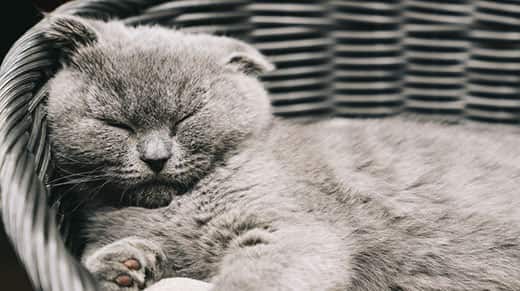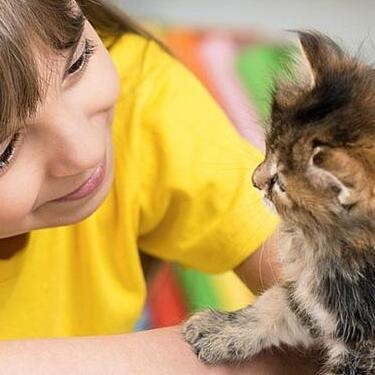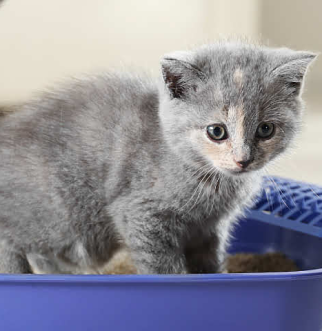
-
Find the right food for your pet
Take this quiz to see which food may be the best for your furry friend.
Find the right food for your pet
Take this quiz to see which food may be the best for your furry friend.
Featured products
 Adult Healthy Cuisine Roasted Chicken, Carrots & Spinach Stew Dog Food
Adult Healthy Cuisine Roasted Chicken, Carrots & Spinach Stew Dog FoodDelicious roasted chicken paired with tender vegetables in a succulent stew
Shop Now Adult 7+ Perfect Digestion Chicken, Whole Oats & Brown Rice Recipe Dog Food
Adult 7+ Perfect Digestion Chicken, Whole Oats & Brown Rice Recipe Dog FoodScience Diet's breakthrough nutrition supports ultimate digestive well-being & healthy microbiome for dogs age 7+
Shop Now Small & Mini Savory Stew with Chicken & Vegetables Dog Food
Small & Mini Savory Stew with Chicken & Vegetables Dog FoodA delicious complement to the nutrition of Science Diet Small & Mini 7+ dog food
Shop NowFeatured products
 Adult Savory Entrée Can Variety Pack Cat Food
Adult Savory Entrée Can Variety Pack Cat FoodPrecisely balanced nutrition with the delicious taste of savory minced chicken to help fuel the energy needs of cats during the prime of their life
Shop Now Adult 7+ Senior Vitality Chicken & Vegetable Stew Cat Food
Adult 7+ Senior Vitality Chicken & Vegetable Stew Cat FoodImproves Everyday Ability to Get Up & Go
Shop Now Adult 7+ Tender Tuna Dinner Cat Food
Adult 7+ Tender Tuna Dinner Cat FoodWith delicious chunks in a decadent gravy
Shop Now -
Dog
- Dog Tips & Articles
-
Health Category
- Weight
- Food & Environmental Sensitivities
- Urinary
- Digestive
- Joint
- Kidney
-
Life Stage
- Puppy Nutrition
- Adult Nutrition
- Senior Nutrition
Cat
- Cat Tips & Articles
-
Health Category
- Weight
- Skin & Food Sensitivities
- Urinary
- Digestive
- Kidney
-
Life Stage
- Kitten Nutrition
- Adult Nutrition
Featured articles
 Do Dogs and Cats have Belly Buttons?
Do Dogs and Cats have Belly Buttons?Learn whether cats & dogs have belly buttons like humans, what the function is, and if there are any health concerns associated with it.
Read More Why Are Dogs and Cats So Cute?
Why Are Dogs and Cats So Cute?If waggy puppy dog tails and furry kitten yawns make you swoon, you're not alone. Why are cats so cute? And, dogs too! Let's find out!
Read More Does My Pet Hate Me?
Does My Pet Hate Me?Learn tips for bonding with your pet if you've ever thought, 'My dog doesn't like me, or 'Why do I have a standoffish cat?'
Read More -


Feline infectious peritonitis, also known as FIP, is a rare and often fatal disease. Because many cats carry the virus that causes FIP in cats, it's important to know about this disease if you're a cat parent.
What Is Feline Infectious Peritonitis?
FIP is caused by a mutation of a coronavirus, a kind of virus that many cats carry though it rarely makes them sick. If the coronavirus your cat carries mutates, however, it can cause FIP. Fortunately, mutations rarely occur and the incidence of FIP is low.
The regular coronavirus lives in a cat's gut and is shed in their feces. Cats become infected with it if they accidentally ingest the virus. If the virus mutates into the form that causes FIP, however, it moves from the gut to the white blood cells and is no longer contagious.
Scientists aren't sure what causes the virus to mutate into a lethal form, but some believe that it has to do with a cat's specific immune system response. Additionally, it is not believed to be a zoonotic virus, meaning that it is not infectious to humans.
It is worth noting that this is not the same coronavirus that is linked to the COVID-19 pandemic. Coronaviruses actually have many different strains, and they get their name from the fact that they are surrounded by a halo called a corona.
Risk Factors
Cats with weakened immune systems are at higher risk of developing FIP. This includes cats younger than 2 years old and cats with compromised immune systems — such as cats with herpes and cats who are sick from other viruses. The disease is much more common in households with multiple cats, in shelters and in breeding colonies. Purebred cats also appear to be at increased risk of FIP.

Signs & Symptoms of Feline Infectious Peritonitis
There are two forms of FIP in cats — the wet form and the dry form. Both share the following signs:
- Weight loss
- Loss of appetite
- Tiredness
- A recurrent fever that doesn't go away with antibiotics
The wet form of FIP causes fluid to build up in either the chest or abdomen, resulting in a distended belly and/or difficulty breathing. The dry form can cause vision-related or neurological problems, such as changes in behavior and seizures.
If your cat displays any of the signs of FIP, schedule an appointment with your veterinarian as soon as possible so they can evaluate your cat. Since some infectious diseases may cause the same signs as FIP, it's also a good idea to isolate your cat from any other pets in your household and to keep them inside until the vet sees them.


Tasty Tips
Diagnosis and Treatment of FIP in Cats
Unfortunately, FIP is tricky to diagnose. Most vets use a combination of exam findings, the cat's health history and lab tests to diagnose FIP. In veterinary hospitals, there are no routine lab tests that doctors can run to specifically diagnose FIP. However, if the vet takes samples of fluid from your cat's chest or abdomen, they can send them to a special laboratory to be tested for FIP viral particles.
Currently, there's no mainstream treatment or cure for FIP. Most vets consider the disease to be fatal. Research in the Journal of Feline Medicine and Surgery, however, shows the extremely promising treatment of FIP with nucleoside analogs, a new antiviral drug treatment. Further studies are needed to assess the safety and efficacy of this treatment.
How to Prevent FIP in Cats
Because having a strong immune system protects cats from FIP, the best way you can help prevent the disease is by supporting their immune system. This includes:
- Feeding them a complete and balanced cat food
- Providing them with daily exercise and mental stimulation
- Taking them to the vet for regular checkups, vaccinations and deworming
- Addressing any disease early on — including obesity and dental disease
- If you have multiple cats, avoiding overcrowding by providing each cat with a minimum of 18 square feet and their own food and water bowls, litter boxes, toys and resting places
- Keeping food and water bowls away from the litter box
- Keeping your cat indoors only, or only letting them out on a leash or in an outdoor enclosure, like a catio.


Dr. Sarah Wooten graduated from UC Davis School of Veterinary Medicine in 2002. A member of the American Society of Veterinary Journalists, Dr. Wooten divides her professional time between small animal practice in Greeley, Colorado, public speaking on associate issues, leadership, and client communication, and writing. She enjoys camping with her family, skiing, SCUBA, and participating in triathlons.
Related products
Related articles

What is the best food for an overweight cat? Learn all about weight control food for cats, including what's in it and how it works.

Discover how to train your cat, starting with very basic first steps that both reward good behavior and discourage the bad.

How do you get a cat to lose weight? Learn all about cat foods for weight loss, including how to choose weight control cat food and exercise tips.

Cats are naturally very clean and chances are your kitten will already have learned how to use the litter box from her mother before she comes to live with you.

Put your cat on a diet without them knowing
Our low calorie formula helps you control your cat's weight. It's packed with high-quality protein for building lean muscles, and made with purposeful ingredients for a flavorful, nutritious meal. Clinically proven antioxidants, Vitamin C+E, help promote a healthy immune system.
Put your cat on a diet without them knowing
Our low calorie formula helps you control your cat's weight. It's packed with high-quality protein for building lean muscles, and made with purposeful ingredients for a flavorful, nutritious meal. Clinically proven antioxidants, Vitamin C+E, help promote a healthy immune system.

